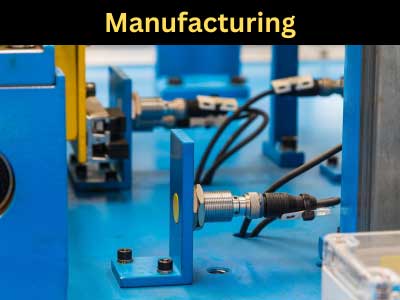What Are The Benefits Of Using Industrial Sensors In Manufacturing?
Key Takeaway
Industrial sensors offer significant benefits in manufacturing. They improve accuracy and precision by providing real-time data, ensuring that processes run smoothly and consistently. This leads to enhanced efficiency, as sensors help optimize production and reduce waste.
Another key benefit is predictive maintenance. Sensors monitor equipment performance and alert operators to potential issues before they become major problems. This proactive approach reduces downtime and maintenance costs. Overall, using industrial sensors results in cost savings and boosts productivity, making them an essential tool in modern manufacturing.
Improved Accuracy and Precision
One of the most significant benefits of industrial sensors is the dramatic improvement in accuracy and precision they bring to manufacturing processes. Sensors are capable of detecting minute changes in various parameters, such as temperature, pressure, and position, allowing for precise control over manufacturing operations. This level of precision is essential in industries where even the slightest deviation can lead to significant product defects or operational inefficiencies.
For example, in the automotive industry, sensors ensure that each component is manufactured to exact specifications, reducing the likelihood of errors and rework. In the pharmaceutical sector, where precision is paramount, sensors monitor critical variables during production, ensuring that products meet stringent quality standards. By enhancing accuracy and precision, industrial sensors help manufacturers produce higher quality products, reduce waste, and minimize the risk of costly recalls.

Enhanced Efficiency and Productivity
Industrial sensors also play a crucial role in enhancing efficiency and productivity within manufacturing environments. By providing real-time data on various aspects of the production process, sensors enable manufacturers to optimize their operations and reduce downtime. For instance, sensors can monitor the performance of machinery and equipment, detecting inefficiencies or potential issues before they escalate into major problems.
In automated manufacturing systems, sensors are integral to the coordination and synchronization of different processes. They ensure that each step in the production line operates smoothly, reducing bottlenecks and improving overall throughput. This increase in efficiency not only boosts productivity but also shortens production cycles, allowing manufacturers to meet market demands more quickly.
Moreover, by automating data collection and analysis, sensors free up human resources for more strategic tasks, further enhancing operational efficiency. The combination of improved accuracy and increased efficiency leads to significant gains in productivity, enabling manufacturers to achieve more with fewer resources.
Real-Time Monitoring and Control
Real-time monitoring and control are among the most transformative benefits of industrial sensors. In a modern manufacturing environment, the ability to monitor processes in real-time is crucial for maintaining optimal performance and ensuring product quality. Sensors continuously collect data on various parameters, providing manufacturers with immediate feedback on the status of their operations.
This real-time data enables quick decision-making, allowing operators to adjust processes on the fly to maintain optimal conditions. For example, if a sensor detects a temperature fluctuation in a chemical process, operators can make immediate adjustments to prevent the production of off-spec products. In addition, real-time monitoring helps in identifying trends and patterns, enabling proactive management of potential issues.
The integration of sensors with advanced control systems further enhances this capability. Automated control systems can respond to sensor data without human intervention, ensuring that manufacturing processes remain within specified parameters at all times. This level of control not only improves product consistency but also reduces the risk of human error, leading to safer and more reliable operations.
Predictive Maintenance
Predictive maintenance is another key advantage of using industrial sensors in manufacturing. Traditional maintenance strategies often rely on scheduled checks or reactive responses to equipment failures. However, these approaches can lead to unnecessary downtime or unexpected breakdowns, both of which are costly for manufacturers.
Sensors enable a more proactive approach by continuously monitoring the condition of machinery and equipment. By analyzing data from sensors, manufacturers can predict when a component is likely to fail and schedule maintenance before it becomes a critical issue. This predictive maintenance approach minimizes unplanned downtime, extends the lifespan of equipment, and reduces maintenance costs.
For example, vibration sensors on rotating equipment can detect early signs of wear and tear, such as misalignment or imbalance, long before they lead to equipment failure. By addressing these issues early, manufacturers can avoid costly repairs and production delays. Predictive maintenance also ensures that equipment is always operating at peak efficiency, contributing to overall operational excellence.
Cost Savings
The cumulative benefits of improved accuracy, enhanced efficiency, real-time monitoring, and predictive maintenance all contribute to significant cost savings in manufacturing. By reducing waste, minimizing downtime, and optimizing resource utilization, industrial sensors help manufacturers lower their operating costs and improve profitability.
For instance, precise control over production processes reduces the amount of raw materials wasted due to defects or inefficiencies. Similarly, predictive maintenance reduces the need for emergency repairs and extends the useful life of expensive equipment, further lowering maintenance expenses. The ability to produce higher quality products with fewer resources also enhances a company’s competitive edge, allowing it to offer better products at lower prices.
In addition to direct cost savings, sensors also contribute to long-term financial stability by improving operational resilience. Companies that invest in sensor technology are better equipped to respond to changes in market demand, supply chain disruptions, or other external factors, making them more agile and competitive in the global marketplace.
Conclusion
Industrial sensors are a powerful tool for modern manufacturers, offering a wide range of benefits that enhance accuracy, efficiency, and overall operational performance. From enabling real-time monitoring and control to supporting predictive maintenance and cost savings, sensors play a critical role in driving manufacturing excellence.
For businesses looking to remain competitive in today’s fast-paced environment, investing in sensor technology is not just an option—it’s a necessity. By leveraging the full potential of industrial sensors, manufacturers can optimize their operations, improve product quality, and achieve greater financial success. As technology continues to advance, the role of sensors in manufacturing will only become more integral, making them a key component of any forward-thinking manufacturing strategy.
